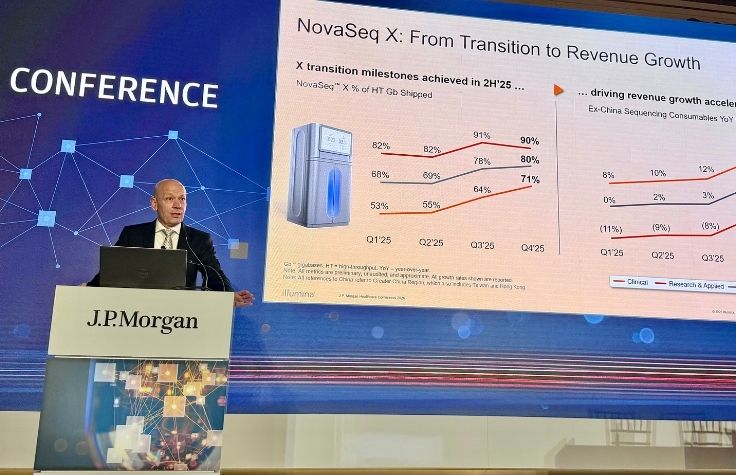
2016年3月25日
On March 1, the American College of Obstetricians and Gynecologists (ACOG) and the Society for Maternal-Fetal Medicine (SMFM) issued a joint Practice Bulletin to provide current information regarding the available screening test options for fetal aneuploidy. The new recommendations strongly encourage physicians to discuss and offer aneuploidy screening or diagnostic testing to all women early in pregnancy, ideally at first prenatal visit, regardless of maternal age, and include women who became pregnant following preimplantation genetic screening (PGS) methods.
According to the bulletin, the screening options offered to pregnant women can now include cell-free DNA screening, also known as noninvasive prenatal testing (NIPT), to allow for patients to make an informed choice of all screening options based on their goals and values.
Healthy individuals usually have 23 pairs of chromosomes, the last pair of which determines sex. In some cases, a genetic change happens to cause an extra or missing chromosome, which is referred to as aneuploidy. There are many different types of tests available today to test for aneuploidy:
- Traditional serum screening: These tests (which include the First Trimester Screen, Triple Screen, Quad Screen, Penta Screen, Integrated Screen, Serum Integrated, Sequential stepwise and Contingent Screen) are used to predict the chance of a pregnancy having certain chromosomal conditions or neural tube defects. Some of these screenings require more than one office visit to perform multiple blood draws and ultrasound examinations at very specific times during pregnancy. Results usually provide a “risk score” with no definitive answer and can have a relatively high rate of “false negative” or “false positive” results. Women with positive screening test results for fetal aneuploidy should be offered further detailed counseling and testing.
- Ultrasound: This technique is used to identify structural abnormalities in the fetus, including increased nuchal translucency and other markers. While ultrasound can be extremely useful in screening multiple fetus pregnancies, it is best used in combination with other screening tests to screen for certain aneuploidy.
- Diagnostic tests: These include amniocentesis or chorionic villus sampling (CVS) and can accurately determine whether a pregnancy has trisomy 21 or other chromosomal conditions. However, the invasive nature of these procedures poses a risk of complications, including miscarriage.
- Noninvasive prenatal testing: NIPT analyzes DNA found in the mother’s blood to screen for aneuploidy in the fetus. Currently it screens for trisomy 21, 18, 13 and sex chromosome aneuploidies. These tests have a low “false positive” rate, especially in high-risk women. It also has the potential for false-negative test result. If a positive result is detected through NIPT, additional diagnostic tests should be done to confirm the result, before any irreversible decisions are made. In some cases, NIPT can be inconclusive. Failure rates vary significantly based on the test provider, and women with failed tests should receive further counseling and testing.
For more information about Illumina’s NIPT options, click here.


